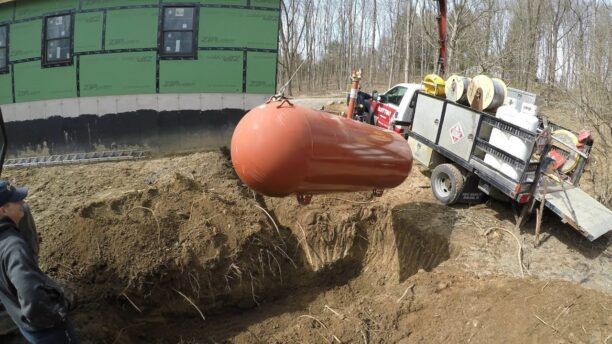Understanding Underground Propane Tank Needs

For propane business owners, the decision to install underground propane tanks presents unique challenges and advantages. These tanks offer several benefits, such as better aesthetics and protection from environmental factors, but they also come with specific maintenance and care requirements. Understanding how to address the needs of underground tanks can enhance both operational efficiency and customer satisfaction.
Advantages of Underground Propane Tanks
Underground propane tanks are increasingly popular because they do not disrupt the landscape. Homeowners and businesses prefer these tanks for aesthetic reasons, as they are buried and hidden from view. For propane retailers, this creates an opportunity to offer a product that caters to customers who are mindful of the appearance of their properties.
Moreover, underground tanks are less exposed to environmental conditions such as extreme temperatures or storm damage, providing an added layer of protection. This increases the longevity of the tank and reduces the frequency of maintenance required due to weather-related wear and tear.
Special Considerations for Underground Tanks
Despite their advantages, underground propane tanks have distinct needs that business owners must address. Moisture and soil conditions can affect the tank’s integrity, making corrosion a significant concern. Tanks buried in areas with poor drainage or high moisture levels are more prone to rust, potentially leading to leaks if not properly maintained.
Propane business owners should ensure that tanks are coated with protective materials and install sacrificial anodes. These anodes act as a preventive measure, absorbing corrosion that would otherwise damage the tank. Regular inspections should be scheduled to assess the condition of the anodes and the tank’s exterior.
Ventilation and Access Points
Another important factor in maintaining underground propane tanks is ensuring proper ventilation. Underground tanks require ventilation systems to prevent pressure buildup and ensure safe operation. Additionally, the access points to the tank, such as fill valves and gauges, must remain unobstructed and accessible to delivery drivers. Keeping these access points clear of debris and ensuring they are visible prevents delays during refueling operations and guarantees safety during inspections.
Water Intrusion and Flooding
Propane business owners should also be mindful of water intrusion, particularly in areas prone to flooding. Flooding can cause tanks to shift or even float, creating hazardous situations. To prevent this, it is critical to install tanks in well-drained areas and secure them to concrete pads or anchors, ensuring stability even in heavy rain or flood conditions. In flood-prone areas, it is necessary to provide customers with guidelines on how to handle tanks after a flood event, ensuring their safety and reducing potential damage to the tank system.
Proper Maintenance Schedules
Establishing a routine maintenance schedule is essential for the upkeep of underground propane tanks. This should include checking for signs of corrosion, inspecting protective coatings and anodes, and ensuring the structural integrity of the tank. Tanks should also be monitored for leaks using specialized detection tools, such as pressure tests and gas detectors. For propane businesses, offering maintenance packages that include these services can add value for customers, while ensuring compliance with safety regulations and prolonging the life of the tanks.
Key Advantages and Key Considerations
Underground propane tanks offer significant advantages but also require dedicated maintenance and attention to ensure they operate safely and efficiently. By understanding and addressing the specific needs of these tanks, propane business owners can enhance their service offerings, reduce maintenance costs, and build trust with customers. Regular inspections, proper installation, and corrosion prevention are key steps in maintaining the reliability and safety of underground propane tanks.













